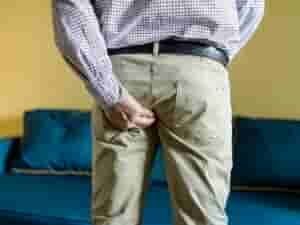A 77-year-old man in Japan who was hospitalized with a mild form of COVID-19 developed a bizarre condition after his recovery. According to doctors, this could be the world’s first case of “Restless Anal Syndrome.”
The Symptom
The symptom is likened to “restless legs syndrome,” which as per experts, is a common neurological disorder characterized by an irresistible urge to move the legs, usually in the evenings.
According to a case study by Dr. Itaru Nakamura, published in BMC Infectious Diseases, the old man was admitted to Tokyo Medical University Hospital after he tested positive for the novel coronavirus. He responded well to the treatment and left the hospital after a few weeks. But he soon developed restlessness and deep anal discomfort, which gave him an “essential urge to move.”
The man said that when he moved his bowels, it gave him no relief. But when he did physical activities, it relieved his stressed anus. According to the man, though the symptoms worsened in the evenings and while he rested, the discomfort eased while walking, running, or playing video games that required motion.
The patient was checked through a colonoscopy, which showed that he had internal hemorrhoids. It did not, however, explain why he had spasms. The doctors also checked his nervous system and found it was working perfectly, Business Insider reported.
What The Lead Doctor Is Saying
The doctors believed that the restless anal syndrome is neurological as they linked it to people with COVID-19 losing their sense of taste and smell. They also said that the patient’s bizarre symptom could be similar to restless legs syndrome, which was detected in at least two other recovered COVID-19 patients.
Nakamura prescribed the man a daily regimen of the sedative clonazepam to help relax his anal muscles. The patient continued to improve after ten months of being treated. After recovery, other symptoms related to COVID-19 are brain fog, ringing in the ears, shortness of breath, anxiety, depression, and more.


